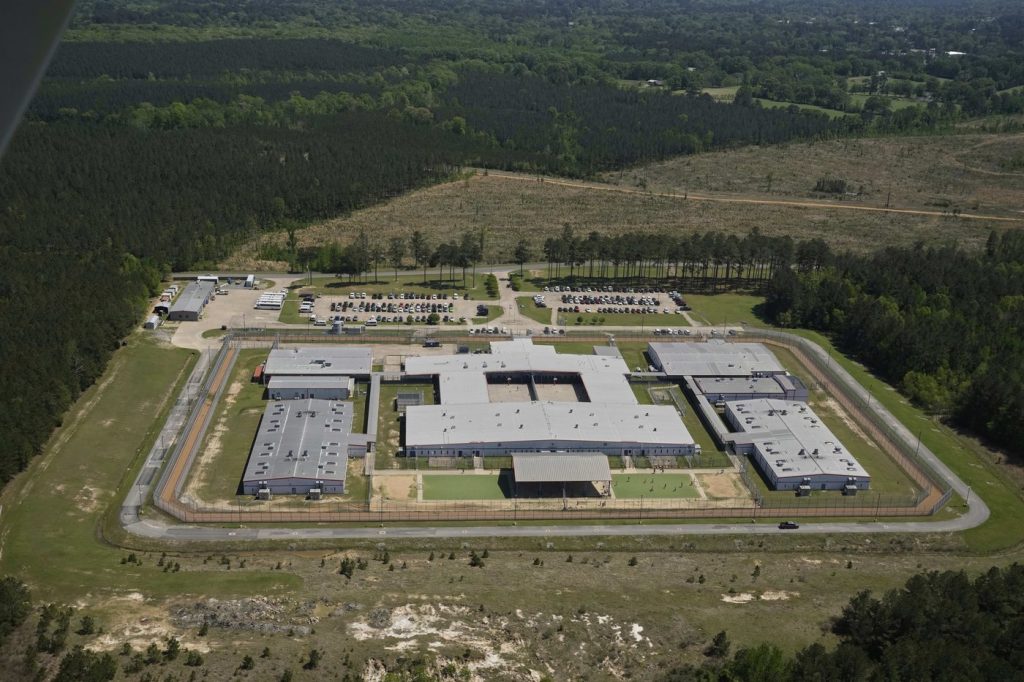In rural Louisiana, nearly 7,000 individuals find themselves in immigration detention centers awaiting decisions on their expulsion from the United States. The Trump administration is pushing for an expansion of the nation’s already vast immigration detention system, aiming to significantly increase capacity from the current 41,000 beds to 100,000 beds. This initiative aligns with President Trump’s campaign promise of mass deportations ahead of the 2024 elections, presenting a profitable opportunity for private prison companies and posing challenges for government agencies overseeing immigration enforcement.
Todd Lyons, acting director of the Immigration and Customs Enforcement (ICE) agency, remarked on the need for the agency to adopt more business-like operations, suggesting that the deportation process could resemble a swift delivery service similar to that of Amazon. He noted the complexities involved in managing human beings in such a high-volume system.
This month, ICE has begun inviting bids from companies to operate detention centers nationwide, with contracts potentially totaling up to $45 billion. The recently approved House spending bill contains $175 billion for immigration enforcement, drastically overshadowing ICE’s annual budget. Many of the 100-plus existing detention centers now hold approximately 46,000 individuals, leading to overcrowded conditions in various locations, including Miami.
Recent contracts awarded to private companies include a $3.85 billion agreement with Deployed Resources LLC to run a facility at Fort Bliss Army Base in Texas. The Geo Group Inc. secured a contract for 1,000 beds in Newark, New Jersey, valued at $1 billion over 15 years, along with another for 1,800 beds in Baldwin, Michigan. Additionally, CoreCivic Inc. will accommodate 2,400 people in families with young children in Dilley, Texas, for five years. The stock market has responded favorably to the expansion of these private correction companies, with Geo Group's stock rising 94% and CoreCivic’s by 62% since Trump’s election.
Notably, Louisiana now ranks second in the nation for immigration detention space, trailing only Texas. This increase in capacity stems from the state’s relatively low labor costs and a political environment conducive to private prison operations. The late 2010s saw ICE take over several former criminal jails, capitalizing on a state law that reduced criminal penalties and thus the necessity for jail beds. Local officials, eager to secure contracts, welcomed immigration detention facilities as economic drivers in rural areas.
However, the legal environment in Louisiana complicates the challenges faced by detainees. Conservative federal courts in the region make it more difficult for individuals in immigration jails to contest their detention conditions or appeal court rulings. ICE strategically chooses the locations of detention centers to create barriers for those seeking to challenge their situations.
Louisiana’s nine immigration detention centers are situated in rural areas, far from cities where legal advocates typically congregate. This geographic isolation imposes difficulties for detainees, who often report feeling cut off from family and support networks. Critics argue that this isolation contributes to the perceived urgency for detainees to abandon their fight against deportation, facilitating the government's mass removal efforts. Detainees frequently describe their conditions as "deplorable," further amplifying concerns about their treatment in these facilities.
One of the main facilities is located in Jena, housing 4,200 people and situated approximately 220 miles from New Orleans. The Jena detention center, operated by Geo Group, is surrounded by security measures including fencing and armed guards. Lawyers working within the detention centers have expressed frustration with video conferencing technologies that, while mitigating some logistical issues, can feel dehumanizing and may reduce the substance of in-person legal engagement.
In summary, the expanding capacity of immigration detention centers in Louisiana under the Trump administration raises serious ethical and legal questions about the treatment of detainees and the broader implications of such policies for the U.S. immigration system.










